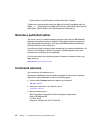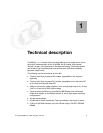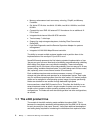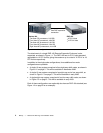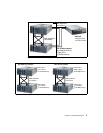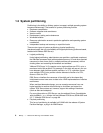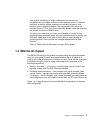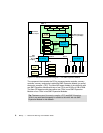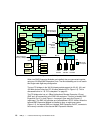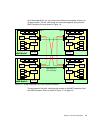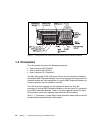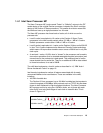6 IBM ^ xSeries 440 Planning and Installation Guide
1.2 System partitioning
Partitioning is the ability to divide a system to support multiple operating system
images simultaneously. The benefits of system partitioning include:
Hardware consolidation
Software migration and coexistence
Version control
Development, testing and maintenance
Workload isolation
Resource optimization around a particular application and operating system
combination
Independent backup and recovery on a partition basis
There are two types of system partitioning: physical partitioning
(hardware-based, but not yet available) and logical partitioning (software-based,
enabled with VMware ESX Server):
Logical partitioning
Using logical partitioning, administrators can partition a multinode complex at
the individual processor level (with associated memory, I/O and other required
resources) or even lower (that is, multiple partitions per processor) without
shutting down and restarting the hardware and software.
VMware ESX Server V1.5 supports one to eight partitions per CPU, up to a
maximum total of 64 partitions. For example, in an eight-way server, you can
have between eight partitions and 64 partitions. In V1.5, a partition cannot
span multiple CPUs, but a partition can be allocated a fraction of a CPU,
down to 1/8th of a CPU.
ESX Server virtualizes the resources of the x440 and is the closest that
Intel-based servers have come to date to the LPAR implementation of zSeries
mainframes.
When workload demands change, you can reassign resources from one
logical partition to another without having to shut down and restart the
system. ESX Server does not, however, support hot-adding of hardware
(such as disks and adapters).
For more information on ESX Server, see the redbook
Server Consolidation
with the IBM
^
xSeries 440 and VMware ESX Server
, SG24-6852 and
3.5.7, “VMware ESX Server” on page 98.
Physical partitioning
This form of partitioning is available in 4Q 2002 with the release of System
Partition Manager, a plug-in for IBM Director.





